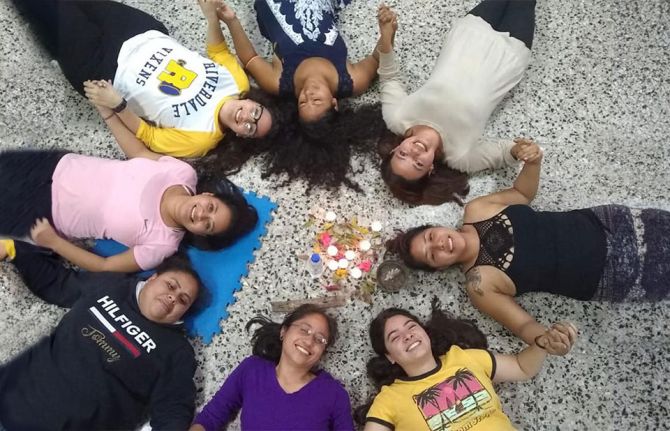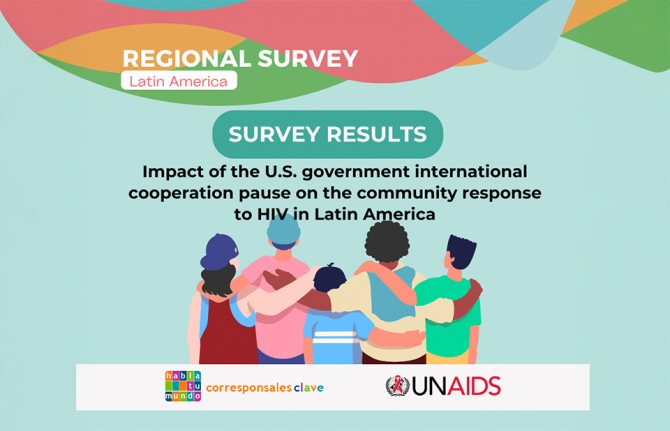

Feature Story
Responding to gender-based violence through sorority and information
15 December 2023
15 December 2023 15 December 2023In the quiet corner of a community center in Guatemala City, 29-year-old Emma - fictitious name - sits among other women she does not know. In the faces and gestures of each of them, you can see that they all carry the weight of violence and injustice on their shoulders.
The first subtle rays of sunlight gradually fill the room; calm and comfort invite Emma and the others to feel more relaxed in their hearts and souls. With tired eyes, small hands, and a heart scarred by violence, she looks around, absorbs the energy of the place, and takes a deep breath as she awaits the start of a therapy session and an informative talk about HIV.
As the therapy session began, Emma shyly and cautiously shared her experiences with Wendi Polanco, who, since 2019, has become a helping hand for many women battered by gender-based violence. Through Latiendo Juntas, the organization she leads in Guatemala, Wendi clearly proves that sisterhood works and is transformative.
With support from UNAIDS, Latiendo Juntas coordinates a project to improve access to comprehensive health services, including sexually transmitted infections (STI) and HIV testing and care for women survivors of violence. They also contribute to their resilience and empowerment by raising awareness of human rights, including their sexual and reproductive rights, through group therapy and HIV information talks, which provide facts and a platform for open dialogue, fostering a non-judgmental environment.
"The room becomes a sanctuary where the pain of women like Emma and so many others is recognized," says Wendi. "The community center is a refuge for them, and a network of support among the women is woven with the sun's warmth. I feel relieved when I see how the weight on their shoulders begins to lessen."
Throughout these therapy sessions, Emma and other women discover comfort and empowerment. The therapeutic journeys offered at Latiendo Juntas become a catalyst for their resilience, liberation, and self-care.
The link between HIV and violence against women is a widespread problem, as gender-based violence increases women's vulnerability to HIV infection. Women who experience violence may have difficulty negotiating safe sexual practices, including the use of condoms, which increases their risk of contracting HIV. In addition, fear of violence may deter women from seeking HIV testing, treatment, and support, perpetuating the cycle of violence and silence and limiting their access to critical and essential healthcare resources.
Violence against women in Guatemala is endemic and can be described as a shadow pandemic. The country has one of the world's highest rates of femicide: the intentional murder of women because they are women.
"Addressing the intersection of HIV and violence against women requires comprehensive efforts that include education, empowerment, and dismantling gender-based power imbalances," says Irene Izquieta, UNAIDS Advisor on Rights and Gender for Guatemala, Honduras, and Nicaragua.



